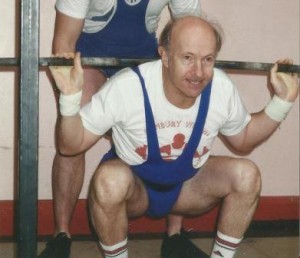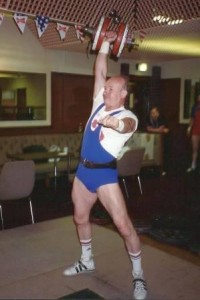by Thom Van Vleck
When I was a kid I hung out with my grandparents often. I probably spent more time with my grandfather than I did my father. I noticed many things about them.
One in particular was my grandmother took a lot of medications. Many of them were for physical health issues. Just as many were for mental health issues with the focus being depression. Let’s just say it was pretty bad. She would often cry, focus on the negatives, and in generally seemed miserable most of the time.
I also noticed that my grandfather did NOT take many medications. He did not have many health issues and later in life when it did it was because he was hit by a car. He was very positive and he was in a great mood most of them time. I can honestly say I never saw him lose his temper, cuss, nor complain. He wasn’t perfect. He could be incredibly stubborn. But in general he was one of the least depressed people I knew.
This made them quite the pair in many ways. Looking at their family history I can say that depression was a common theme on my grandmother’s side. My grandfather’s side not a much. So there may have been a genetic predisposition for it. But I am not going to focus on the things that cannot be controlled. There was a major difference between the two that I think played a big factor in why one was depressed and the other was not.
That difference was exercise.
My grandfather worked out almost constantly. He also incorporated exercise into work. If he had to shovel something he would do 5 scoops to the right and 5 to the left. I went with him on the mail truck and every stop he would do jumping jacks or push ups. He would even do isometrics withe the steering wheel or set up a board to do calf raises at his work bench. I never once heard him complain about work or exercise. I’m not saying he loved it but he certainly didn’t hate it.
My grandmother was the model of efficiency. In other words she would figure out the way to get the most done with the least amount of effort. She was NOT lazy. She just saw no point to exercise. Anything that required effort was loathed by her and she complained the entire time she had to put forth effort. Again, she was not lazy. She did piece work in a factory and made good money because she was fast. It was just that when she did anything that required effort all she did was look forward to the next break.
There are dozens of studies telling you what may seem like common sense to many of us who workout regularly. That is exercise prevents depression. I know many times I have thought to myself, “I need a good workout” and when I did it I felt better. The fact is science is showing more and more evidence that this is the case.
When I first came to work at the medical school as the counselor I started an exercise program. At first my boss thought I was doing it because it was my “hobby” but the reality is I did it to promote mental health. I knew that if we could set up fast, efficient workout programs with trainers to help motivate the students in a fun but challenging atmosphere those that did it would be better off mentally. That club, the Osteoblasters, has become the 2nd largest club on campus and we program 7-9 workouts a week that equals over 250 individual workouts. Fitness was only a sub-goal.
Too often when people get down or depressed the first thought is to see a doctor and get medication. There is a time and a place for that but it is often overused. What people really need is a good workout program and to make the time to do it! To me, taking anti-depressants without working out would be like taking supplements without working out. There may be some benefit but not nearly as much as if someone were working out and taking supplements!
So fight the blues with a good workout!

